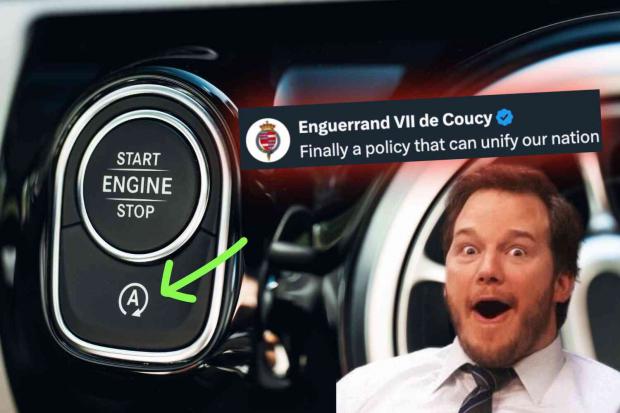
Breaking News
 White House reveals bombshell trade deal with China... weeks after tariffs ripped world economy
White House reveals bombshell trade deal with China... weeks after tariffs ripped world economy
 Banned Recording Reveals Everything Happening in Egypt
Banned Recording Reveals Everything Happening in Egypt
 Geologists discover the largest copper, gold, and silver deposit in the last three decades
Geologists discover the largest copper, gold, and silver deposit in the last three decades
 Boeing has a contract to replace Air Force One. What's the delay?
Boeing has a contract to replace Air Force One. What's the delay?
Top Tech News
 Cab-less truck glider leaps autonomously between road and rail
Cab-less truck glider leaps autonomously between road and rail
 Can Tesla DOJO Chips Pass Nvidia GPUs?
Can Tesla DOJO Chips Pass Nvidia GPUs?
 Iron-fortified lumber could be a greener alternative to steel beams
Iron-fortified lumber could be a greener alternative to steel beams
 One man, 856 venom hits, and the path to a universal snakebite cure
One man, 856 venom hits, and the path to a universal snakebite cure
 Dr. McCullough reveals cancer-fighting drug Big Pharma hopes you never hear about…
Dr. McCullough reveals cancer-fighting drug Big Pharma hopes you never hear about…
 EXCLUSIVE: Raytheon Whistleblower Who Exposed The Neutrino Earthquake Weapon In Antarctica...
EXCLUSIVE: Raytheon Whistleblower Who Exposed The Neutrino Earthquake Weapon In Antarctica...
 Doctors Say Injecting Gold Into Eyeballs Could Restore Lost Vision
Doctors Say Injecting Gold Into Eyeballs Could Restore Lost Vision
 Dark Matter: An 86-lb, 800-hp EV motor by Koenigsegg
Dark Matter: An 86-lb, 800-hp EV motor by Koenigsegg
 Spacetop puts a massive multi-window workspace in front of your eyes
Spacetop puts a massive multi-window workspace in front of your eyes
EPA Targets Engine Start-Stop Systems In Cars... That Everyone Hates

Start-stop systems exploded under Obama-era rules offering emissions credits, but officials are now signaling a course reversal...
Authored by Tom Ozimek via The Epoch Times (emphasis ours),
The Trump administration is taking aim at automatic engine start-stop systems—technology installed in millions of U.S. vehicles to reduce fuel use and emissions—with Environmental Protection Agency (EPA) Administrator Lee Zeldin signaling plans to roll back incentives for the feature that he says drivers despise.
"Start/stop technology: where your car dies at every red light so companies get a climate participation trophy," Zeldin wrote in a May 12 post on social media. "EPA approved it, and everyone hates it, so we're fixing it."
Zeldin's announcement comes amid a broader shift under President Donald Trump, whose administration has moved aggressively to dismantle a range of environmental rules it says put pointless burdens on energy producers, manufacturers, and consumers.
While the EPA doesn't require start-stop systems, it has granted automakers fuel economy credits for adopting the technology. Zeldin's post suggests the agency may eliminate or revise those incentives, though officials have yet to announce formal policy changes.

 Node without Consent
Node without Consent

